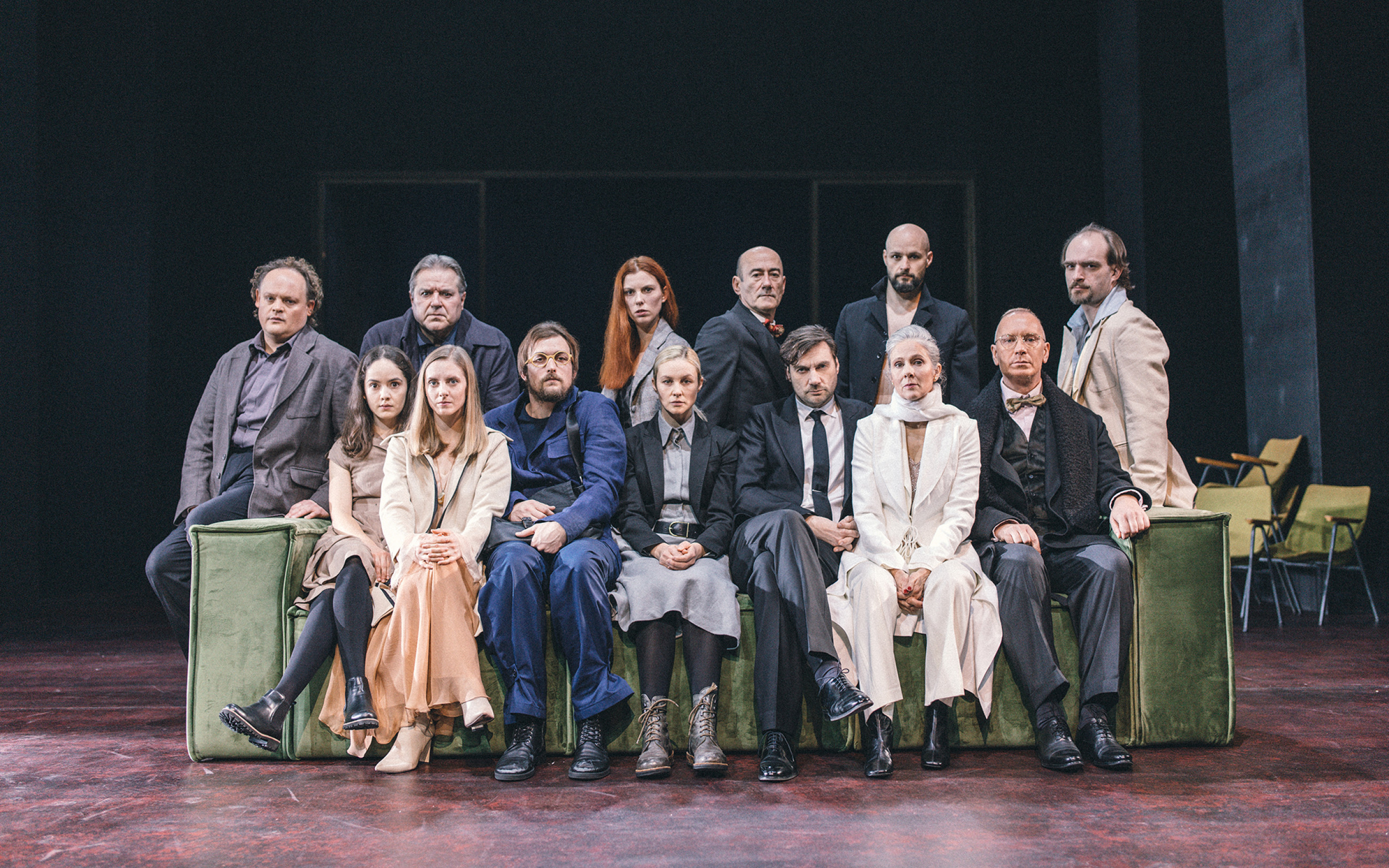Anton Pavlovič Čehov
The Cherry Orchard
After having spent five years in Paris, Lyubov Andreievna Ranevskaya, the aristocratic landowner, returns with her seventeen-year-old daughter Anya back to her home estate that is renowned for a wonderful cherry orchard. Although Varya, Lyubov’s adopted daughter, takes loving care of it, it will have to go to the auction due to Ranevskaya’s hard financial situation. The ambitious merchant Lopakhin – whose father and grand-father served as serfs at the estate and who is a selfmade man– proposes Ranevskaya to divide the estate, develop it into summer cottages and put them up for rent. This would require the destruction of the orchard; nevertheless, the family would keep the estate and even make money out of it. Instead of listening to him, Ranevskaya hesitates and waits for a miracle to happen. Surrounded by her relatives and friends she does not seek to find solution to the crisis, but rather prefers to throw parties and keep on dissipating money. Finally, the estate is bought at the auction by Lopakhin who begins to chop down trees before the family disintegrates.
Вишнёвый сад, 1904
Comedy in four acts
Performance length is 2 hours and 35 minutes and has 1 pause.
Creators
Translator
Milan Jesih
Director
Janusz Kica
Dramaturg
Petra Pogorevc
Set designer
Karin Fritz
Costume designer
Bjanka Adžić Ursulov
Language consultant
Maja Cerar
Music selector
Darja Hlavka Godina
Lighting designer
Andrej Koležnik
Sound designer
Sašo Dragaš
Assistant to director
Živa Bizovičar, AGRFT
Assistant to dramaturg
Manca Lipoglavšek, AGRFT
Actors
Lyubov Andreievna Ranevskaya
Nataša Tič Ralijan
Anya, her daughter
Lena Hribar Škrlec
Varya, her adopted daughter
Iva Krajnc Bagola
Leonid Andreievitch Gayev, Ranevskaya’s brother
Uroš Smolej
Yermolai Alexeievitch Lopakhin, a merchant
Branko Jordan
Peter Sergeievitch Trofimov, a student
Filip Samobor
Boris Borisovich Simeonov-Pishchik, a landowner
Jožef Ropoša
Charlotta Ivanovna, a governess
Tina Potočnik Vrhovnik
Simeon Panteleievitch Yepikhodov, a clerk
Gašper Jarni
Dunyasha, a maidservant
Lara Wolf k. g.
Yasha, a young footman
Gregor Gruden
Fiers, an old footman
Boris Ostan
A Passer-by
Jaka Lah

The metaphor of the cut down orchard serves as a warning to a society that clings on to the past and dreams of the future, while the present lingers in the void. In this sense, the play is always vividand contemporary as it offers a deliberation on the state of society and our attitude towards it.
In his last play written at his home in Yalta by the Black Sea, Anton Pavlovich Chekhov created an insightful portrait of the Russian society. After the abolition of serfdom in the countryside and the industrialisation of towns and cities in the second half of the 19th century, the Russian society went through far-reaching changes. Alongside merchant Lopakhin, the representative of the new class of merchants and Ranevskaya’s family friend, there appears Trofimov, a student who announces the rising tide of the Revolution, although his actions and character traits resemble those of his ruinous hosts rather than the workingclass insurgents. In spite of the serious themes addressed in The Cherry Orchard, the author labell edit a comedy.
Namely, the play is written in a modern style relying on impressionism and symbolism, sunk in melancholy and full of light humour.

